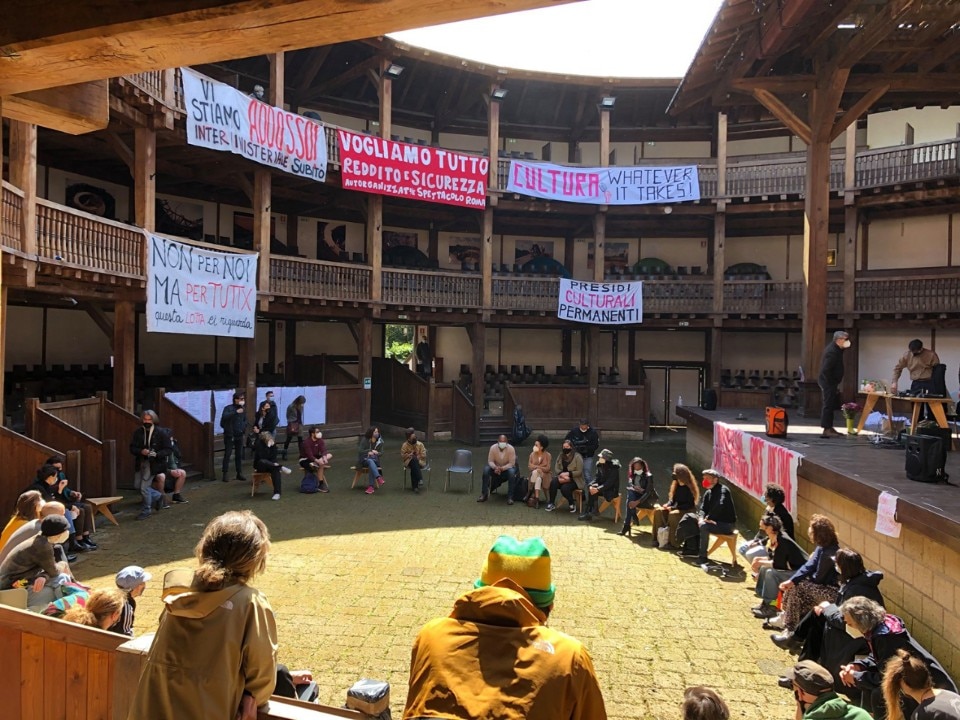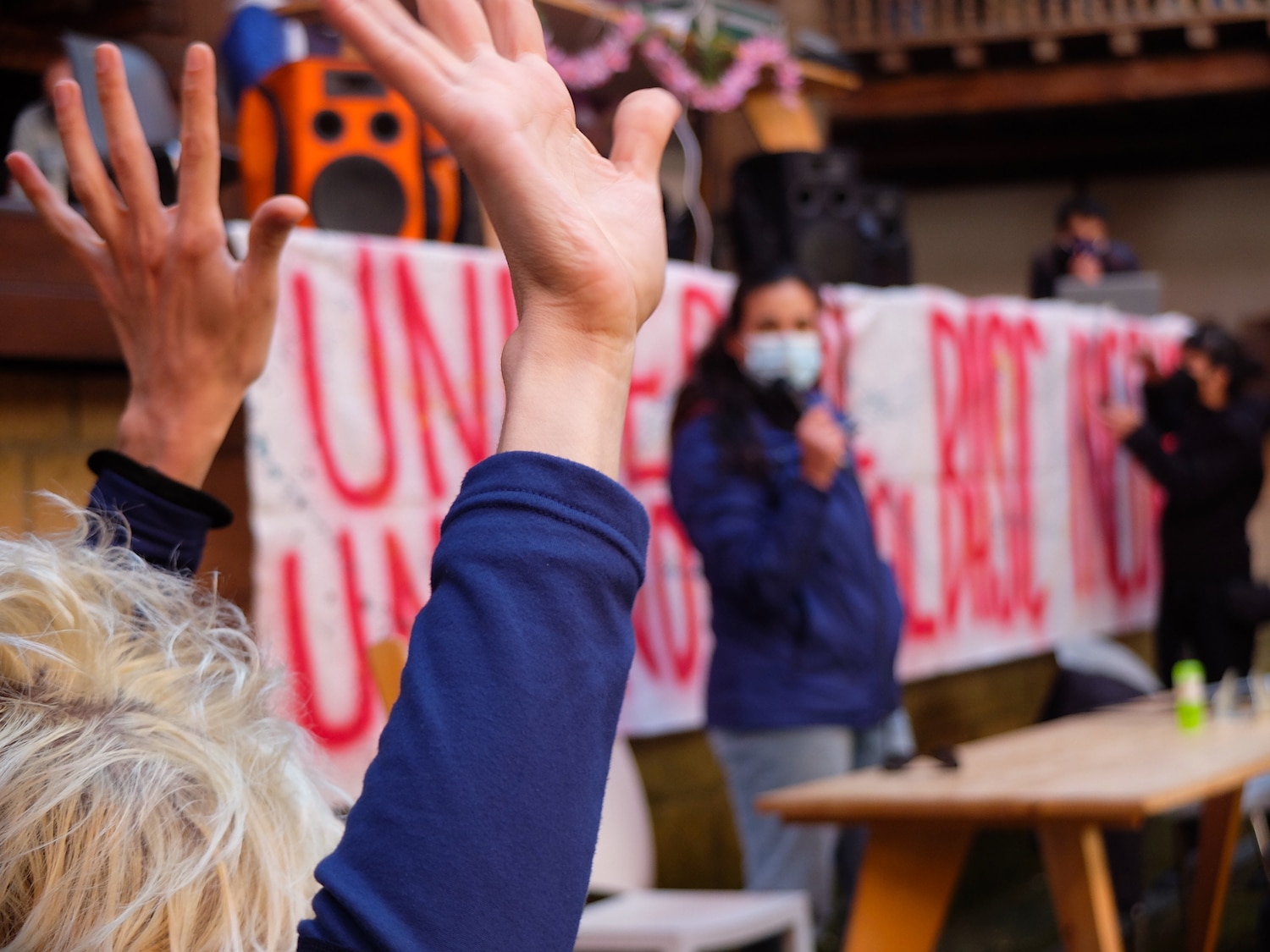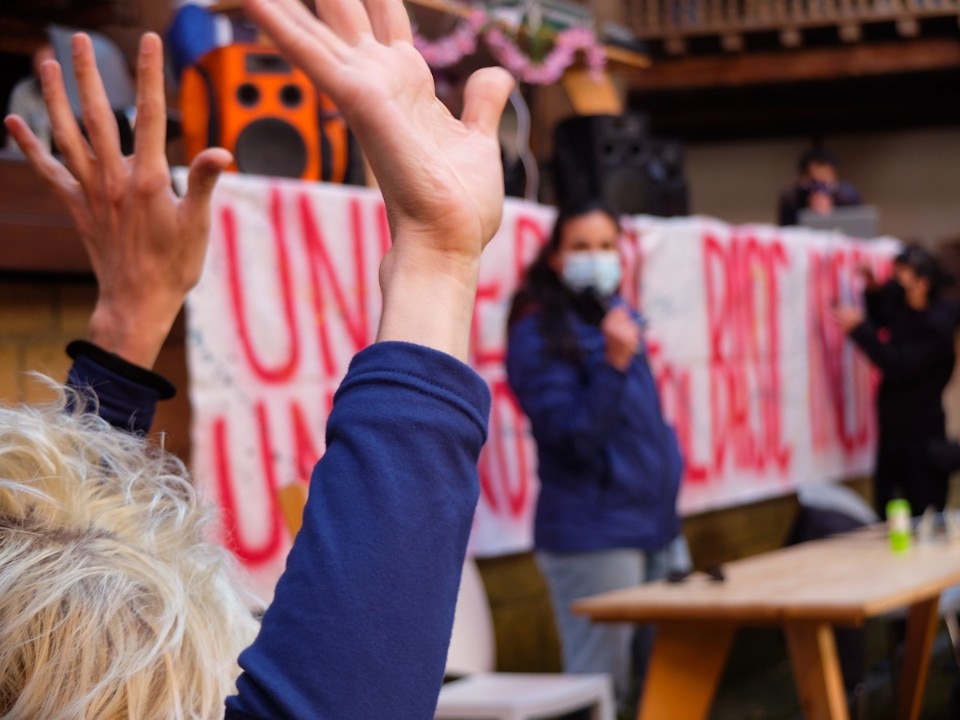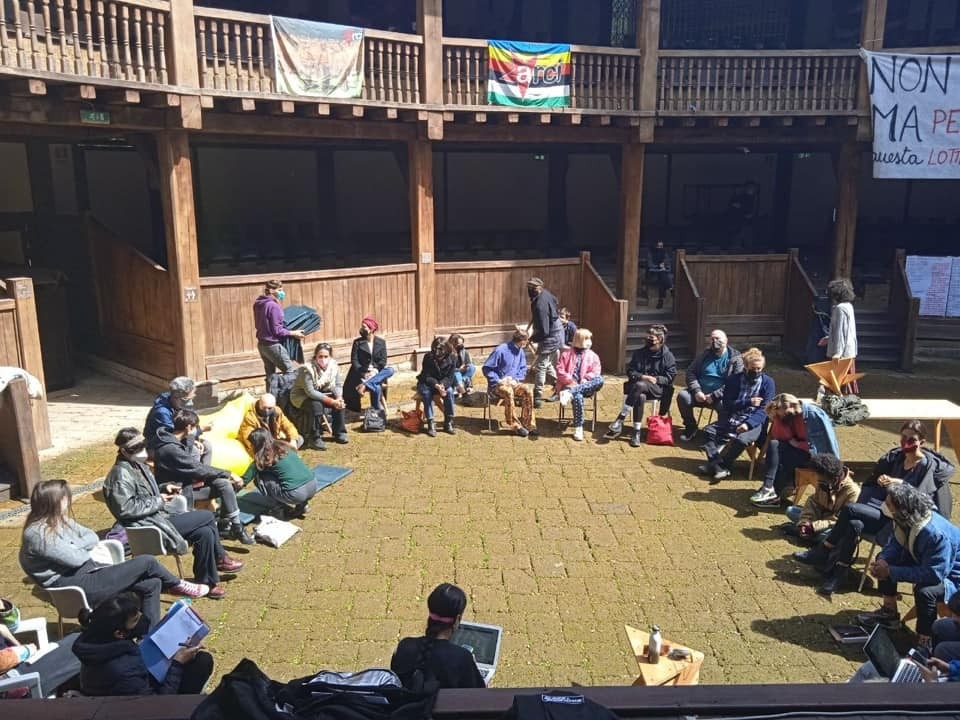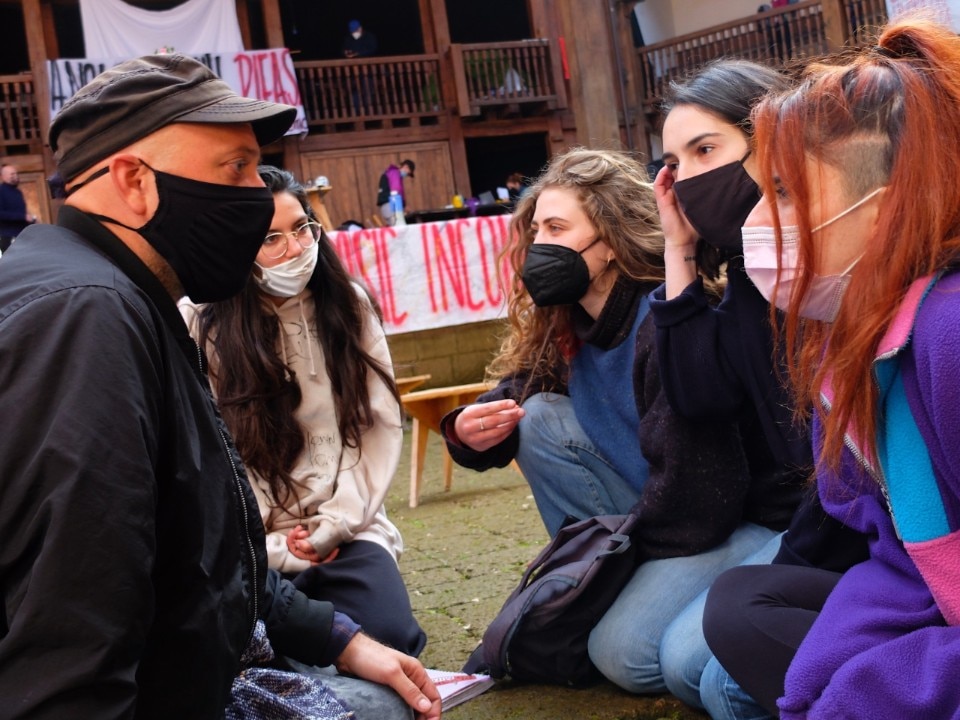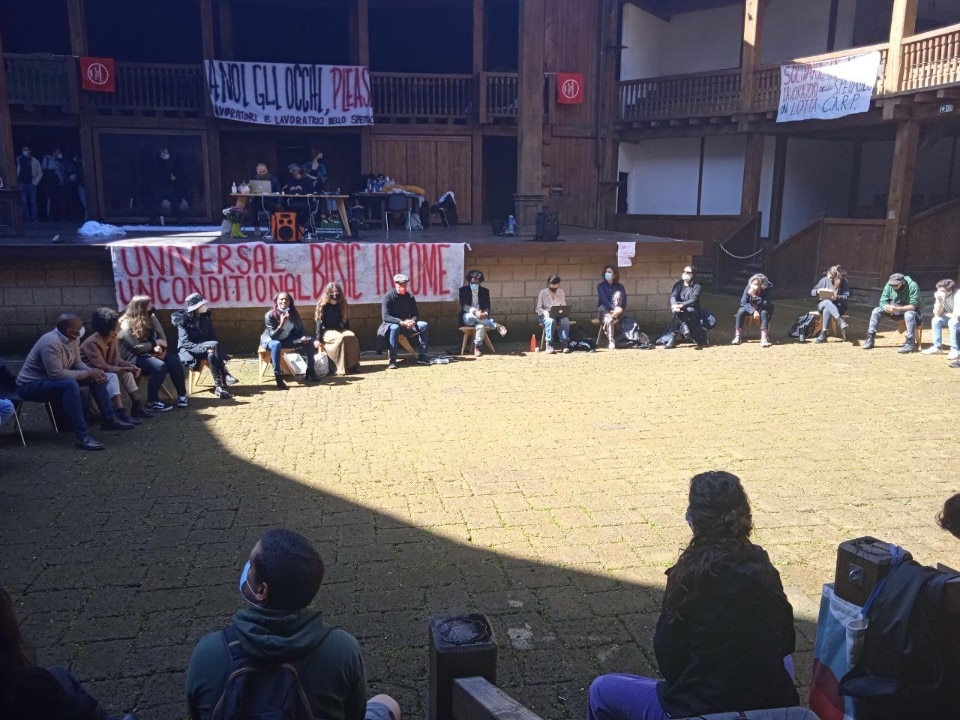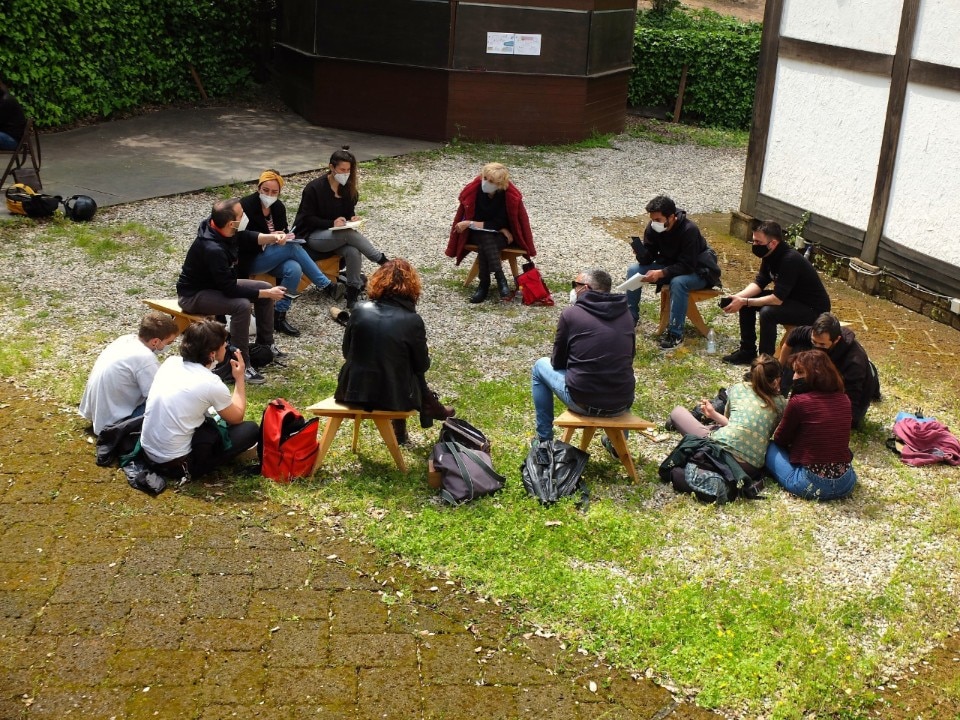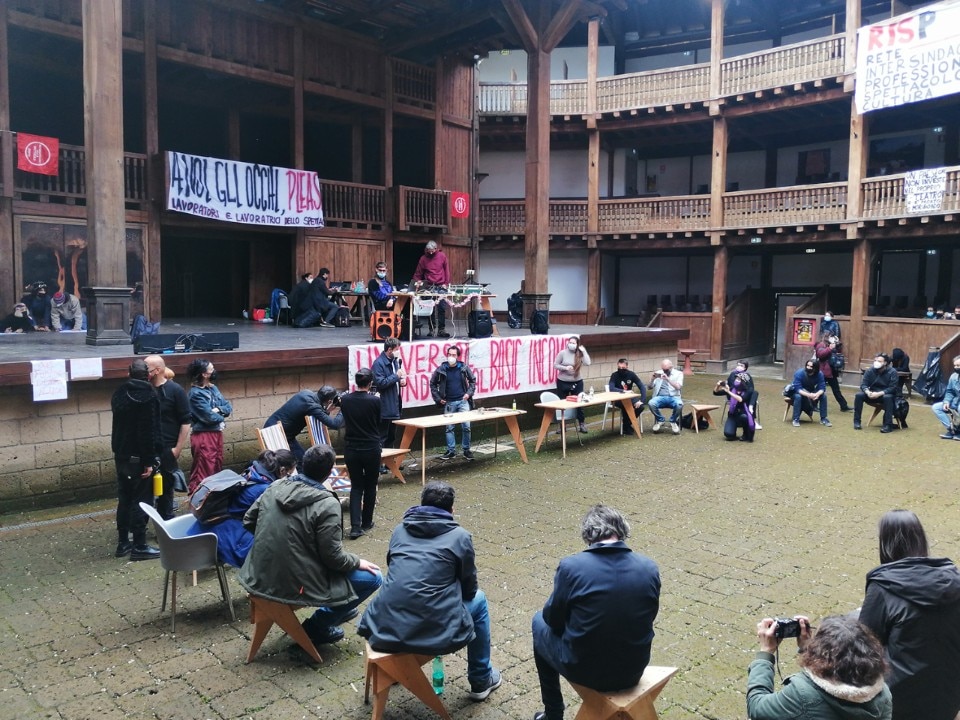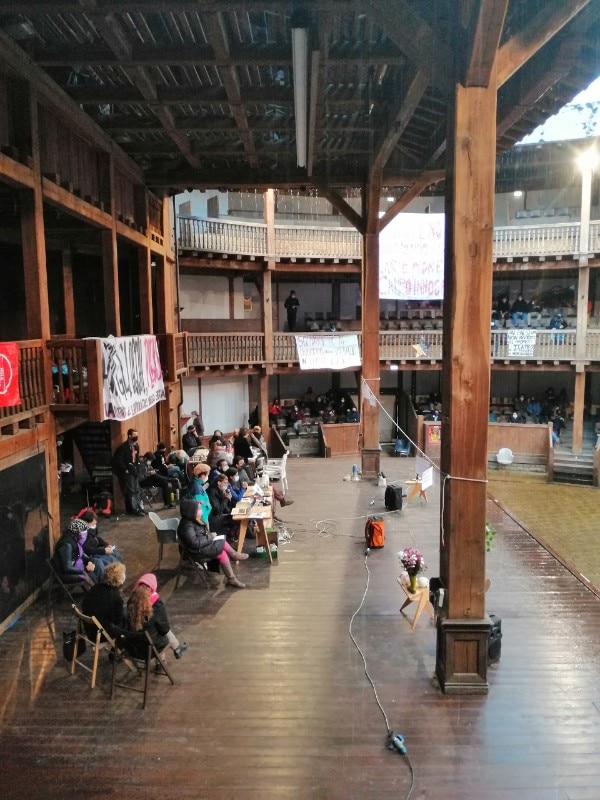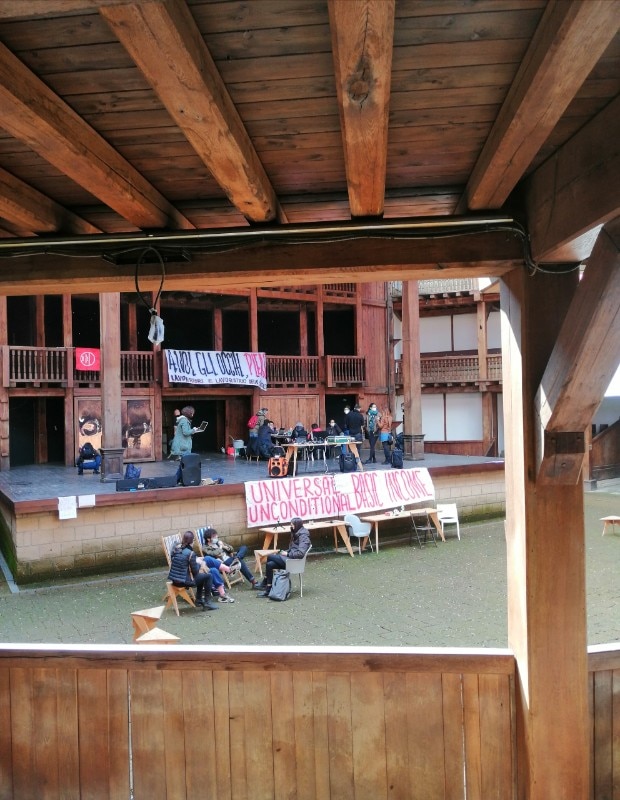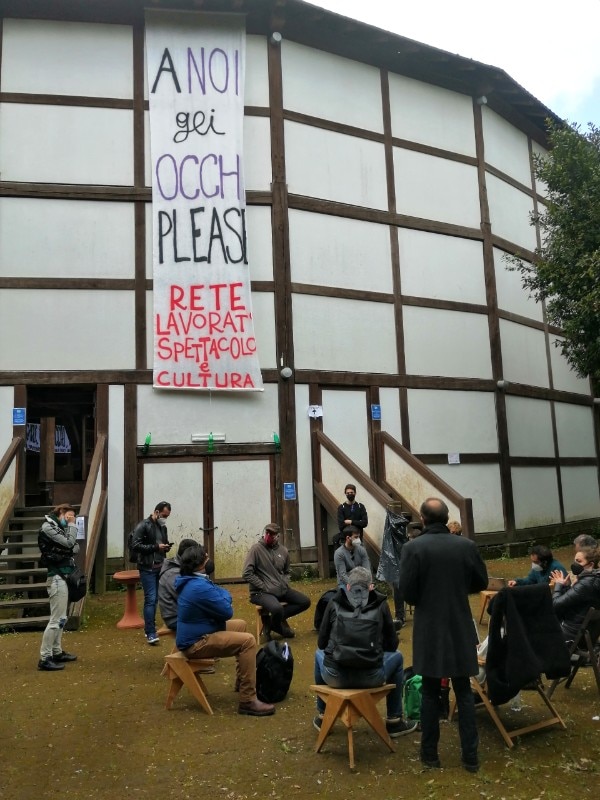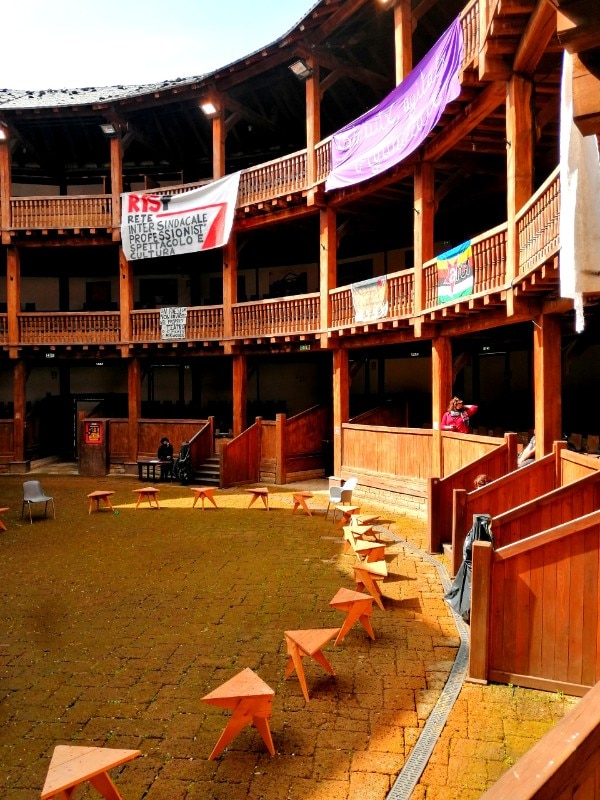The Piccolo Teatro Grassi in Milan, the Teatro Mercadante in Naples and the Globe Theatre in Rome are the three main Italian outposts of an international movement of protest and reflection that began on 4 March 2021 in Paris with the occupation of the Odeon theatre. These spaces have become temporary headquarters for theatre workers, activists and, more generally, for anyone operating in the world of culture. They are called Permanent Cultural Parliaments and are the places where the imagination of our countries can start again. Over the past few days we have collected some testimonies to understand the spirit of the initiatives and the mood in these 'liberated' places.
Rome
“A country that does not invest in its theatres is either dead or dying”, “Educated, agitated, organised”, “Universal Unconditional Basic Income”, “Eyes to us, please”, “Not for us, but for everyone. This struggle concerns us” and “Art is not a world apart. Art is not an innocent field”. These are just a few of the sentences that scanned the wooden structure of the Globe Theatre in Rome. Poetic and powerful at the same time, they are the synthesis of complex claims, the basis of a long year of struggle by the workers in the performing arts, culminating in the temporary occupation of the Elizabethan-style theatre in the park of Villa Borghese. For five days – from 14 to 18 April – this mostly open-air stage became a piazza, a place to meet, debate and discuss, in order to demand a structural reform of the sector and not just emergency measures.
Starting from the theatre, to involve all fields of culture, and to fight precariousness, violence, sexism. A national and widespread movement – which also sees in connection the occupations of Milan, Naples, Padua, Turin and Barletta – finally vital, strong, with the aim of interweaving the struggles and designing new forms of relationship with the institutions. Three thousand people crossed the stage, safely, to talk around open and inclusive thematic working tables. They brought proposals, personal and collective paths, recounted and compared difficulties and fragilities, and fought together for a fairer distribution of resources and work. The debate is mainly led by those who work in the world of theatre, from workers to artists, but anyone working in culture, from the visual arts to architecture and publishing can identify with it. To make and remake the world: Remake the Globe is the slogan. An impromptu action full of wonder, like everything that happens suddenly and breaks the balance. A year after the dramatic crisis that has hit the world of entertainment, following the health emergency, the action finally managed to bring the Minister of Culture and the Minister of Labour to the same table, in an initial meeting that took place on 22 April and whose synthesis is contained in this online video:
This is just the beginning, "We are on to you", as one of the banners reads.
(Emilia Giorgi)
Naples
The climate in Naples is hot. There is agitation in the world of culture. The occupation of the foyer of the Teatro Mercadante continues, with a permanent presence that acts as an epicentre, a square and a laboratory where more or less organised attempts to activate actions, reflections and reactions converge The logic of “ristori” (temporary economic support) does not hold up and does not satisfy a world mainly made up of intermittent workers: technicians, actors, musicians, directors, set designers, a multiplicity of unprotected figures.
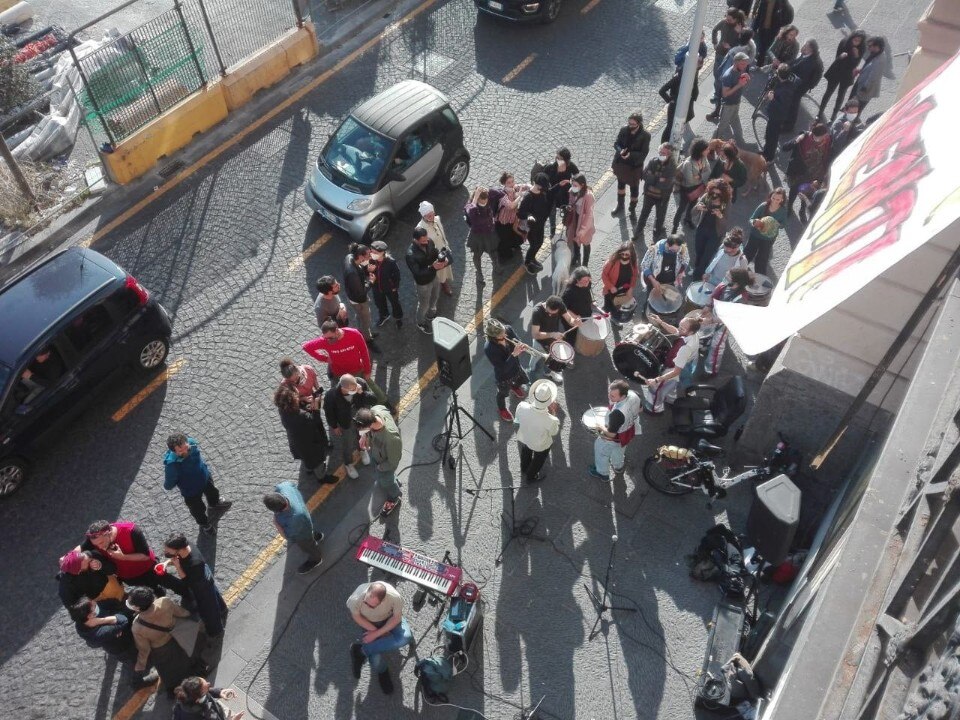
The movement that is growing throughout the country is demanding a paradigm shift in government policies and a recognition of the value of cultural work. We want everything to resonate and unite the multiple subjectivities that run through this ferment. In Naples, the presidium and Freeway Fridays keep the temperature high. Culture is on the move and has taken a diagonal outside and away from everything that the governmental and media debate puts at the centre. The interesting thing is precisely this refusal to be enclosed within the confines of an empty logic and role. This is how lives that want it all can really become possible.
(Marco Petroni)
Milan
Sunday 18 March 2021, 4.45 p.m. On the tram to the Piccolo Teatro Grassi, I realise I am in a state of excitement: I have not taken part in a cultural or social initiative for over a year. The theatre was occupied on 27 March last year and hosts daily events organised by groups, collectives or professionals working in Milan. Passing through the central Via Dante, one cannot fail to notice the occupation: next to the entrance, along with coloured banners, there are loudspeakers that allow the talks given every day to be broadcast outside. Today's activities include a citizens' assembly organised by the Macao arts centre.
I find a small group of people in front of the entrance who have not managed to get into the space because the capacity of the courtyard is controlled to avoid crowds. I start to follow the speeches from outside and only manage to sneak in after slightly less than half an hour.
“We took this place on 27 March to open a forum for dialogue within the culture and entertainment sector. We come from a year and more of struggles because with the pandemic our sector came to a complete standstill. Together we want to write a reform proposal for our sector, which is not only for us but for all discontinuous and precarious workers,” says Monia, representative of the Coordinamento Spettacolo Lombardia.
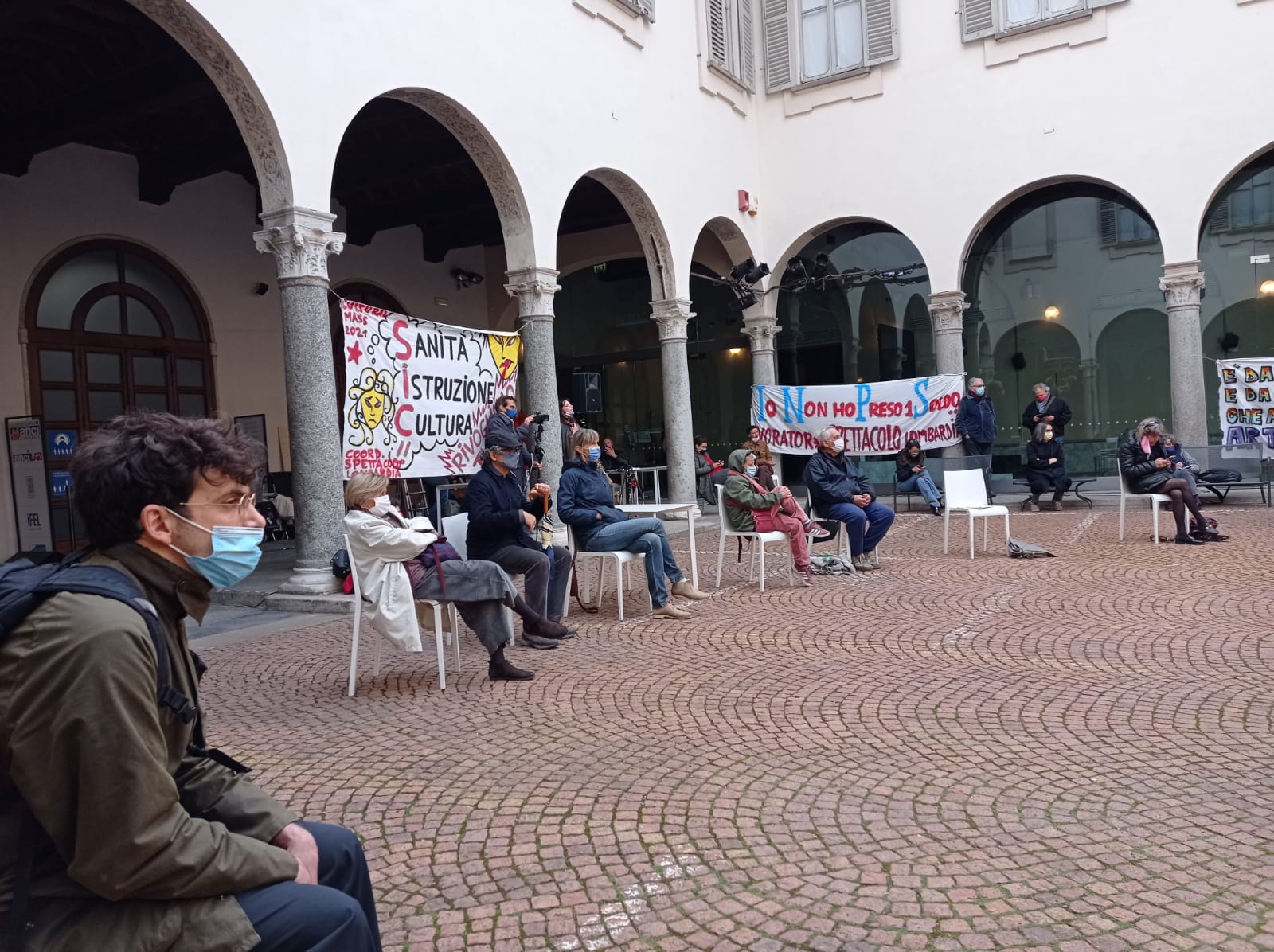
In the centre of the arcaded courtyard I find a large map of the city, called “The Map of Care”, which illustrates the constellation of affirmative practices operating in the area. Often marginalised or invisible to the eyes of institutions, these organisations are a valuable resource for the city.
"We are at a time when the whole of Europe, starting from the culture and knowledge networks sector, is making a strong statement on how to rebuild a decent life after the pandemic. The stakes are high! We believe that the institutional management of the health and economic crisis has favoured the production sector, to the detriment of welfare, territorial health and social reproduction, of those who promote bottom-up culture and those who have struggled the most," says Emanuele di Macao. "It is time to affirm the need for a continuity income for all categories: from VAT holders to riders, from the self-employed to intermittent workers. Universal".
The sequence of presentations affirms that the claims of those who pass through the theatre on a daily basis go beyond those of a specific category. It is interesting to note how alliances and intersectionality develop between groups and issues that may seem distant from each other. “Health, education, culture” is written on a poster hanging in the courtyard. This is an excellent summary to describe the variety of reflections addressed by a number of people (unfortunately limited by social distancing), who “find in this space a place to start building a new vision of the future.”
(Salvatore Peluso)


